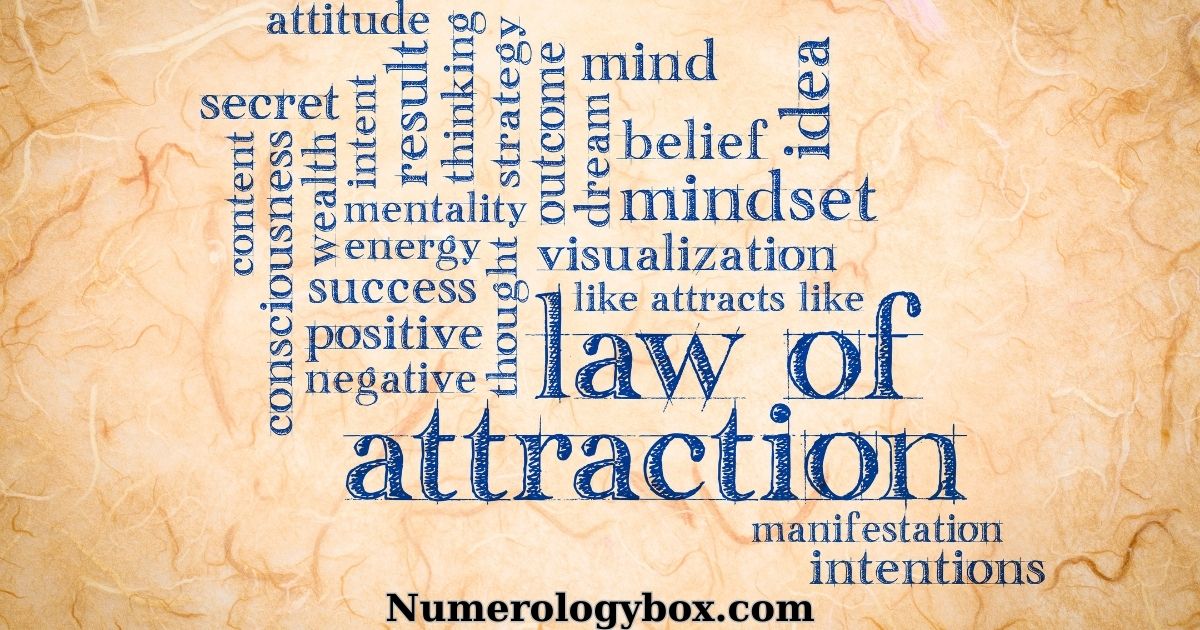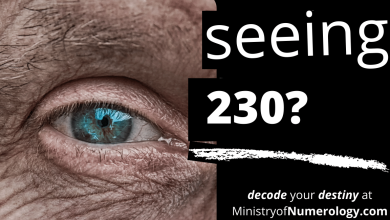Does law of attraction exist?
The Law of Attraction is a popular concept that has gained widespread attention in recent years, thanks in part to the success of books like “The Secret” and movies like “What the Bleep Do We Know?”. At its core, the Law of Attraction suggests that positive thinking can bring success and happiness, while negative thinking can bring failure and misery. But is there any evidence to support these claims? In this article, we’ll explore the science and research behind the Law of Attraction to determine whether it really works.

What is the Law of Attraction?
The Law of Attraction is a concept that suggests that positive thoughts and emotions can attract positive experiences and outcomes, while negative thoughts and emotions can attract negative experiences and outcomes. The idea has been around for centuries, with roots in various spiritual and philosophical traditions, but it gained widespread attention in the early 21st century through the success of books like “The Secret” and movies like “What the Bleep Do We Know?”.
At its core, the Law of Attraction is based on the idea that everything in the universe is made up of energy, and that this energy is influenced by our thoughts and emotions. According to the Law of Attraction, when we focus our thoughts and emotions on positive things like abundance, love, and success, we can attract more of those things into our lives. On the other hand, when we focus on negative things like fear, anger, and scarcity, we can attract more of those things as well.
The Law of Attraction is commonly applied through practices like visualization, affirmations, and gratitude. Visualization involves mentally picturing yourself achieving your goals and experiencing positive outcomes. Affirmations involve repeating positive statements about yourself and your life to reinforce positive beliefs and attitudes. Gratitude practices involve expressing gratitude for the positive things in your life to shift your focus away from negativity and towards abundance.
Key proponents of the Law of Attraction include spiritual teachers like Esther Hicks and Wayne Dyer, as well as motivational speakers and writers like Tony Robbins and Jack Canfield. While the Law of Attraction has many passionate followers who credit it with transforming their lives, others are more skeptical and argue that it oversimplifies complex issues and ignores the role of systemic factors like privilege and inequality.
The Science of the Law of Attraction
While the Law of Attraction has its roots in spiritual and philosophical traditions, some proponents have suggested that there is also scientific evidence to support its claims. In this section, we’ll explore some of the research that has been conducted on the Law of Attraction.
One area of research has focused on the relationship between positive thinking and success. For example, some studies have found that people who have more optimistic outlooks tend to be more successful in their careers and relationships, and may even have better physical health. Other studies have found that people who practice gratitude and mindfulness have improved well-being and lower levels of stress.
Another area of research has explored the power of visualization, one of the key practices associated with the Law of Attraction. Some studies have found that mental imagery can have a powerful impact on our perceptions and behaviors. For example, athletes who visualize themselves performing well have been found to perform better in competitions. Similarly, cancer patients who use visualization techniques have reported reduced pain and anxiety.
The placebo effect is another phenomenon that has been linked to the Law of Attraction. The placebo effect refers to the phenomenon in which people experience improvements in their health or well-being simply because they believe they are receiving a treatment, even if the treatment is inactive. Some researchers have suggested that the Law of Attraction works in a similar way, in that our beliefs and expectations can shape our experiences and outcomes.
Finally, the Law of Attraction is often associated with the idea of the subconscious mind, which is believed to play a powerful role in shaping our thoughts and behaviors. According to some proponents of the Law of Attraction, by tapping into our subconscious minds through practices like visualization and affirmations, we can harness our full potential and achieve our goals.
While there is some scientific evidence to support certain aspects of the Law of Attraction, it is important to note that much of the research is still preliminary or inconclusive. Some critics have also argued that the Law of Attraction oversimplifies complex issues and fails to account for the role of external factors such as social and economic conditions in shaping our experiences and outcomes. As such, while the Law of Attraction may be a useful tool for personal growth and development, it is important to approach it with a critical and open-minded perspective.
Criticisms and Limitations of the Law of Attraction
While the Law of Attraction has gained a significant following over the years, it is not without its criticisms and limitations. One of the main criticisms of the Law of Attraction is that it oversimplifies complex issues and fails to account for the role of external factors in shaping our experiences and outcomes. For example, social and economic conditions, as well as factors like race, gender, and sexuality, can all play a significant role in determining a person’s success and happiness, regardless of their thoughts and beliefs.
Another criticism of the Law of Attraction is that it can be dangerous when taken to an extreme. Some proponents of the Law of Attraction have suggested that positive thinking alone can cure illnesses or solve all of life’s problems, which can lead to a dangerous form of “magical thinking” that ignores the reality of the situation. In some cases, this can even lead people to avoid seeking medical treatment or taking action to address problems in their lives.
Furthermore, the Law of Attraction can be seen as a form of victim-blaming, as it implies that people who experience negative outcomes are somehow responsible for their own misfortune. This ignores the reality that many people face systemic barriers and disadvantages that make it difficult for them to succeed, regardless of their thoughts and beliefs.
Finally, the Law of Attraction can also be criticized for promoting a narrow and individualistic view of success and happiness. While the Law of Attraction may be helpful for personal growth and development, it fails to address larger societal issues and may even contribute to a culture of individualism and self-absorption.
In conclusion, while the Law of Attraction can be a useful tool for personal growth and development, it is important to approach it with a critical and nuanced perspective. By recognizing the limitations and criticisms of the Law of Attraction, we can better understand its potential benefits and drawbacks and use it as one tool among many for achieving our goals and improving our lives.
Conclusion
The Law of Attraction is a popular concept that has gained significant attention in recent years. It suggests that our thoughts and beliefs can influence our experiences and outcomes in life. While the scientific evidence behind the Law of Attraction may be limited, many people have reported significant benefits from applying its principles to their lives, such as increased motivation, positivity, and success.
However, it is important to recognize that the Law of Attraction is not a magic solution to all of life’s problems. It is one tool among many that we can use to improve our lives, but it should not be seen as a substitute for addressing larger societal issues or systemic barriers that may prevent us from achieving our goals.
Furthermore, the Law of Attraction should be applied with a critical and nuanced perspective. We should be mindful of the limitations and potential dangers of oversimplifying complex issues or ignoring external factors that may play a role in shaping our experiences and outcomes. It is important to consider the broader social and cultural contexts in which we operate, and to recognize that individual success and happiness are not solely determined by our thoughts and beliefs.
Overall, the Law of Attraction can be a helpful tool for personal growth and development, but it is important to approach it with a balanced and critical perspective. By combining the principles of the Law of Attraction with other tools and strategies, we can work towards achieving our goals and improving our lives in a holistic and sustainable way.
————
If you’re interested in learning more about the Law of Attraction and how it can be applied to your life, there are many resources available online and in print. However, it’s important to approach these resources critically and with an open mind, and to remember that success and happiness are complex and multifaceted issues that cannot be reduced to a single formula or technique. By staying curious, open, and grounded, you can explore the possibilities and potential of the Law of Attraction while remaining mindful of its limitations and challenges.
FAQs law of attraction
What is the Law of Attraction?
The Law of Attraction is the belief that positive or negative thoughts and beliefs can influence a person’s experiences and outcomes in life. It suggests that by focusing on positive thoughts and beliefs, a person can attract positive experiences and outcomes, and vice versa.
Is there any scientific evidence to support the Law of Attraction?
While there is limited scientific evidence to support the Law of Attraction, some studies suggest that positive thinking and visualization can have a beneficial effect on a person’s mood, motivation, and behavior.
Can the Law of Attraction help me achieve my goals?
The Law of Attraction can be a useful tool for achieving personal goals, but it should be used in conjunction with other strategies and techniques, such as setting realistic goals, creating an action plan, and taking consistent action.
Can the Law of Attraction be harmful?
The Law of Attraction can be harmful when taken to an extreme or used as a substitute for seeking professional help or medical treatment. It can also be harmful when it promotes a narrow or individualistic view of success and happiness.
Is the Law of Attraction compatible with religious or spiritual beliefs?
The Law of Attraction is compatible with a variety of religious and spiritual beliefs, as well as with secular or non-religious worldviews. It is a personal philosophy that can be adapted to suit individual needs and beliefs.
Can anyone use the Law of Attraction, or does it only work for certain people?
The Law of Attraction can be used by anyone, regardless of their age, gender, race, or background. However, its effectiveness may vary depending on individual circumstances and the degree to which a person is able to apply its principles to their life.
Relation:
Can dreams reflect reality?
Did Einstein Believe in the Law of Attraction? The Truth Revealed
What did Muhammad look like?
Source: https://numerologybox.com
Category: Angel Number


